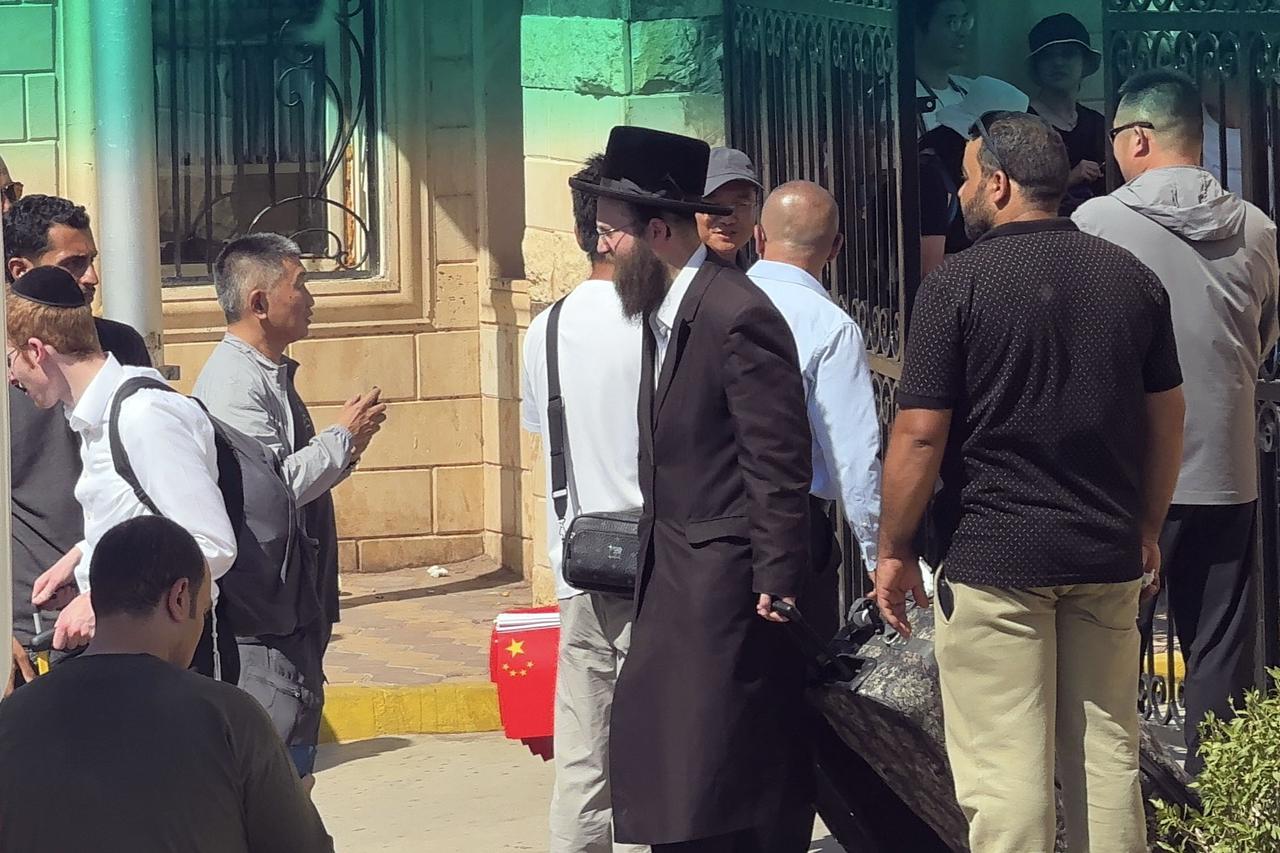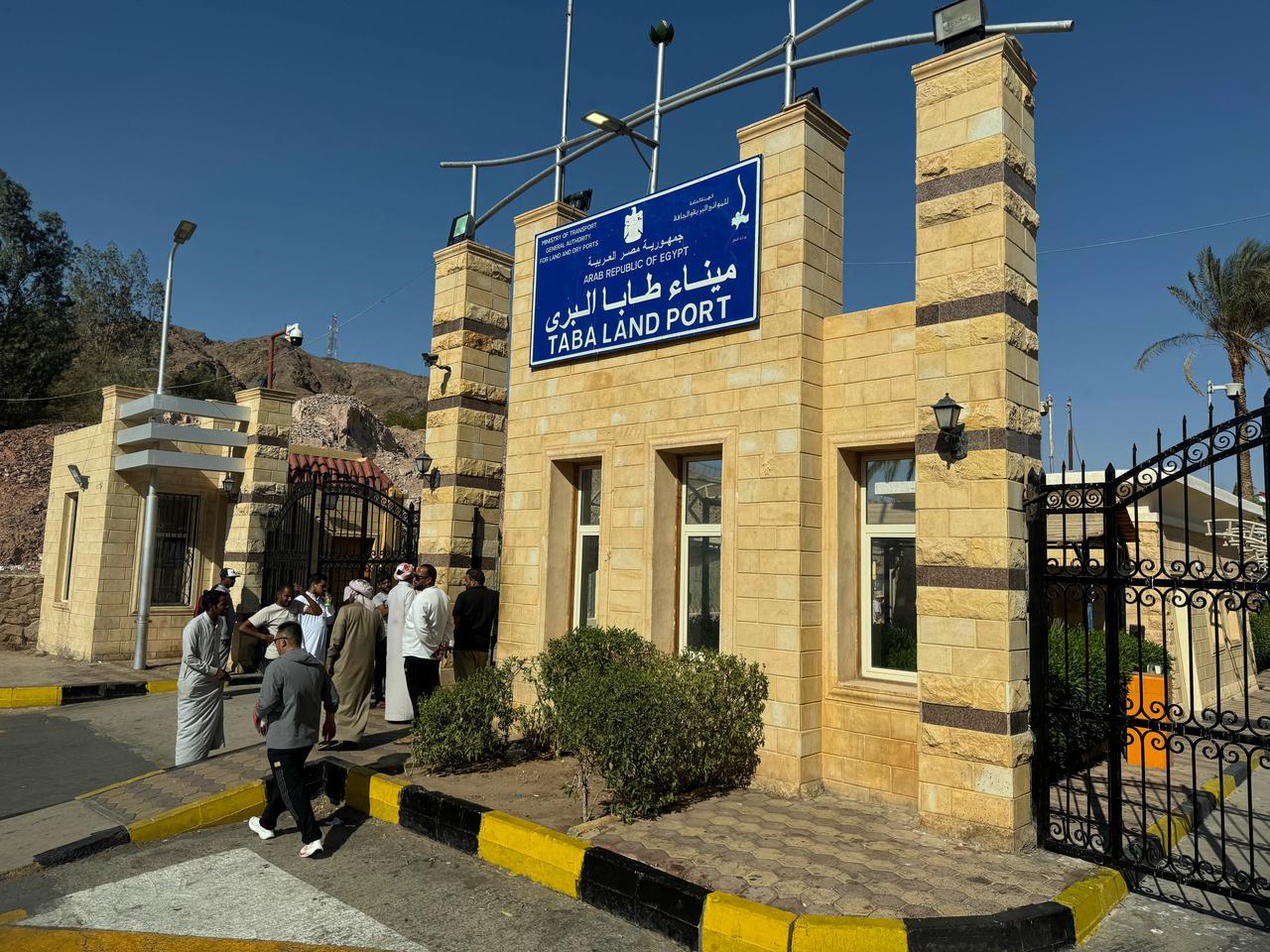
Just days after Egyptian forces blocked solidarity convoys heading to Gaza and detained dozens of international activists from the “Global March to Gaza” before deporting them, news emerged of new directives from the Egyptian government. The Egyptian authorities reportedly instructed officials to facilitate the stay of incoming Israeli nationals and ensure their protection.
At the same time, continuous security briefings are reportedly being sent to the Egyptian president’s office to prevent any incident that could provoke public outrage or embarrass Cairo in front of its international partners.
The government justified these measures as an effort to maintain a delicate balance between national security requirements, diplomatic obligations, and mounting public anger over normalization with Israel.
The government claims it is trying to maintain a delicate balance between national security, diplomatic commitments, and rising public anger over normalization with Israel.
Despite these justifications, critics have pointed to what they describe as an unprecedented leniency in dealing with Israeli visitors, especially when contrasted with the crackdown on the international solidarity march and the "Freedom Flotilla."
Thousands of foreigners, including diplomats and international staff, have crossed into Egypt in recent days through the border to travel via Sharm el-Sheik airport to various destinations, in coordination with their governments, Israel, and Egyptian authorities. Meanwhile, thousands of Israelis remain in South Sinai, awaiting a return home once the situation stabilizes.
The influx of Israeli nationals into Egypt’s Taba region has driven a dramatic surge in hotel occupancy rates. In the resorts of Nuweiba and Taba—overlooking the Gulf of Aqaba in northeastern Egypt—occupancy jumped from 15% to 60%, a 300% increase. The surge is largely due to foreign nationals residing in Israel fleeing amid escalating military tensions between Tel Aviv and Tehran.
Sources in the tourism sector told Al Arabiya Business that the 12-day conflict triggered a massive build-up of cross-border traffic at the Taba crossing point, which separates Egypt and Israel, with most travelers holding European passports.
It appears Egyptian authorities are capitalizing on the Israeli exodus to boost the local tourism season and generate revenue. According to the same sources, the surge in demand for transportation has caused taxi fares to soar, with prices ranging from $100 to $300 depending on vehicle type and comfort level.
Flight operations at Sharm el-Sheik airport remain unaffected, with bookings on EgyptAir rising as many Israelis opt to fly to Cairo and then onward to Europe.
Tourism sources in the area said many Israelis arrived in Taba by private car—or even on foot—and filled up both hotels and rental homes. An employee at a hotel in Taba told Middle East Eye: “Occupancy is at record levels, but we’ve been instructed not to speak about the Israeli guests—not even with our families.”
“No matter how they behave or what they do, we were told to be tolerant and to stay silent. We shouldn’t even share what we see or hear with our own relatives,” the hotel worker added.

The Taba border crossing lies just south of Israel’s Eilat and is the only functioning land crossing between Egypt and Israel for tourists. Israel occupied Taba after Egypt’s defeat in the 1967 war, and it was only returned to Egyptian sovereignty in 1989 following international arbitration under former President Hosni Mubarak, making it the last part of the Sinai Peninsula to be restored to Egypt. Mubarak was ousted in a popular uprising in 2011.
While the 1979 peace treaty allows Israelis to enter South Sinai without a visa and stay for up to 14 days, there are growing concerns in Cairo that some may remain longer. There are also fears of potential legal loopholes being exploited, particularly regarding Egypt’s law prohibiting foreign ownership of property in Sinai.